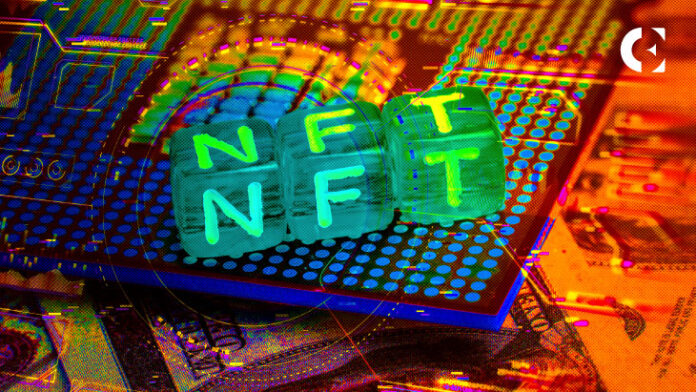- The USPTO and the US Copyright Office released a joint report acknowledging the advantages and challenges of NFT space.
- The Offices assert that the existing enforcement mechanisms can handle NFTs’ prevailing infringement concerns.
- As per the joint report, no changes to the IP laws are advisable at the moment.
The U.S. Patent and Trademark Office (USPTO) and the U.S. Copyright Office, in their recent study, concluded that the existing statutory enforcement mechanisms are sufficient to address the prevailing infringement concerns of the NFT arena. The Offices cautioned against any amendments to intellectual property (IP) laws, adding that it is not “advisable.”
The joint research was a result of a request dated June 2022 put forward by Patrick Leahy, the former Chair of the Senate Committee on the Judiciary Subcommittee on IP, and Thom Tillis, a Ranking Member. Analyzing public comments and key details, the Offices examined both the advantages and challenges of non-fungible tokens (NFTs).
Kathi Vidal, Under Secretary of Commerce for IP and Director of the USPTO, acknowledged the unique opportunities offered by NFTs for creators to leverage their IP rights. However, Vidal addressed the “new challenges” faced by the market in keeping their work secure. Assuring to pursue their efforts to identify and solve the issues, Vidal stated,
We continue to work side-by-side with industry and government collaborators…to better understand the IP implications…We look forward to continuing these efforts and our ongoing work to ensure USPTO’s practices and U.S. policy evolve to address emerging technologies so that we best serve the needs of our nation’s creators and innovators.
Further, Shira Perlmutter, Register of Copyrights and Director of the U.S. Copyright Office, posited that the report has been a result of a “broad spectrum of comments” from different contributors. Perlmutter added, “We look forward to continuing to engage with stakeholders on emerging technologies and implications for IP rights.”
Disclaimer: The information presented in this article is for informational and educational purposes only. The article does not constitute financial advice or advice of any kind. Coin Edition is not responsible for any losses incurred as a result of the utilization of content, products, or services mentioned. Readers are advised to exercise caution before taking any action related to the company.










